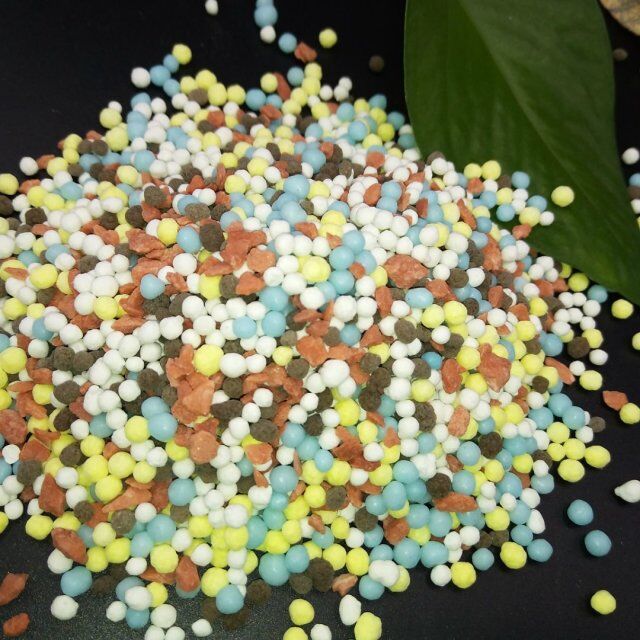
Dec . 10, 2024 08:24 Back to list
best organic iron fertilizer
The Best Organic Iron Fertilizers for Healthy Plants
Iron is an essential micronutrient that plays a crucial role in plant growth. It is necessary for chlorophyll production, helps in the synthesis of proteins and enzymes, and is vital for the overall health of plants. However, many soils, especially alkaline ones, can be deficient in available iron, leading to a condition known as iron chlorosis. This situation manifests as yellowing leaves, particularly in younger foliage, and can severely hinder plant growth and productivity. To combat this issue, using organic iron fertilizers can be a sustainable and effective approach.
Understanding Organic Iron Fertilizers
Organic iron fertilizers are derived from natural sources and provide a slow-release form of iron. Unlike synthetic fertilizers, they enhance soil health, improve microbial activity, and promote a balanced ecosystem. These fertilizers often contain other nutrients, making them a holistic choice for addressing various deficiencies.
The Best Organic Iron Fertilizers
1. Compost Tea with Iron-Rich Ingredients Compost tea is a liquid fertilizer made by steeping compost in water. When you add iron-rich materials like greensand or iron sulfate to your compost, the resulting tea becomes an excellent source of organic iron. It’s easy to make at home, and the nutrients are readily available to plants when applied to the soil or as a foliar spray.
2. Greensand Greensand is a marine sedimentary rock containing glauconite, a mineral rich in iron. It not only provides iron but also helps improve soil structure and water retention. Greensand is particularly beneficial for sandy soils as it enhances moisture retention and nutrient availability. To use greensand, simply mix it into your soil or apply it as a top dressing.
3. Kelp Meal Kelp meal is another great organic option. While it is primarily valued for its hormones and micronutrients, it contains a modest amount of iron. Kelp meal enhances soil fertility and encourages plant growth, making it a beneficial addition. The slow-release nature of kelp meal ensures that plants have a steady supply of iron over time.
4. Iron Chelate Organic iron chelates, such as those derived from lignin or amino acids, are specially formulated to enhance iron availability in alkaline soils. These chelates bind with iron ions, making them more accessible to plants. While iron chelates can be synthetic, many organic options are available that align with sustainable gardening practices.
best organic iron fertilizer

5. Biochar Biochar, a form of charcoal produced from organic material, is gaining popularity for its numerous soil benefits. When made from iron-rich biomass, biochar can serve as a slow-release iron source. Additionally, it improves soil aeration, water retention, and microbial activity, making it a valuable component of any organic fertilizer strategy.
Application Tips
To maximize the effectiveness of organic iron fertilizers, consider the following application tips
- Soil Testing Before applying any fertilizers, conduct a soil test to assess iron levels and pH. This ensures you are not over- or under-applying any amendments.
- Timing Apply iron fertilizers during the growing season, ideally in early spring or mid-summer, when plants are actively growing and can uptake nutrients more effectively.
- Foliar Application For immediate relief from iron chlorosis, consider a foliar application of organic iron chelate. This method allows plants to absorb the nutrient directly through their leaves, providing a quick boost.
- Consistent Use Organic fertilizers release their nutrients slowly. Regular applications throughout the growing season can help maintain adequate iron levels and support healthy plant development.
Conclusion
Using organic iron fertilizers can effectively combat iron deficiency in plants while promoting a healthy soil ecosystem. With various options available, such as compost tea, greensand, kelp meal, iron chelates, and biochar, gardeners can choose the best method that suits their needs. By understanding soil conditions and application techniques, you can ensure your plants receive the essential nutrients they need to thrive, leading to vibrant and productive gardens. Embrace organic gardening practices, and watch your plants flourish with the right balance of iron and care.
-
Premium Organic Manure Compost for Eco Gardens
NewsAug.01,2025
-
Organic 10-10-10 Fertilizer | Balanced Plant Nutrients
NewsJul.31,2025
-
Premium Amino Acid Fertilizer | Rapid Plant Growth Booster
NewsJul.31,2025
-
10 10 10 Fertilizer Organic—Balanced NPK for All Plants
NewsJul.30,2025
-
Premium 10 10 10 Fertilizer Organic for Balanced Plant Growth
NewsJul.29,2025
-
Premium 10 10 10 Fertilizer Organic for Balanced Plant Growth
NewsJul.29,2025
